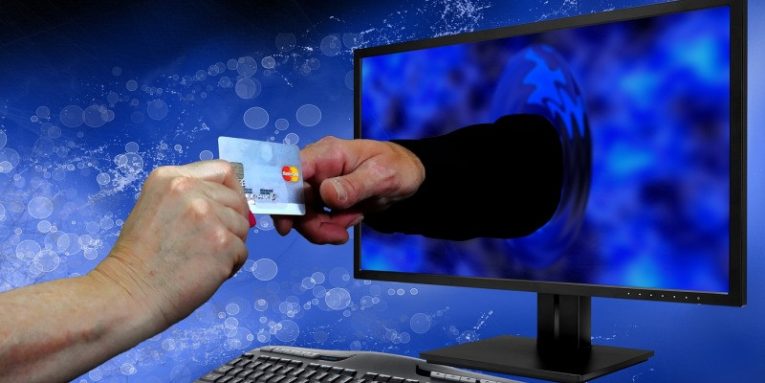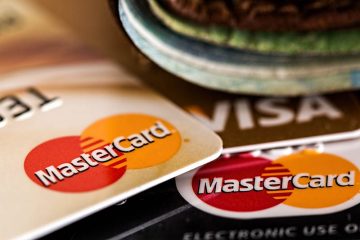Secure Your Credit Card Data by Avoiding These 7 Situations

If you have a credit card, you might be in the habit of whipping it out at a moment's notice. Whether you are shopping in a physical store or online, sharing your card details might seem like no big deal at all. Unfortunately, there are scenarios in which you could seriously jeopardize your virtual security by disclosing sensitive information. If you continue reading, you will learn about situations, in which you need to be extremely careful. If you want to add to the list, or you have questions about credit card security in general, note that we can always continue the discussion in the comments section.
Table of Contents
Situation #1: You use credit cards on public Wi-Fi
If you did not know this already, using public Wi-Fi is one of those things that you should do in emergency situations only. This might come as a shocker to you if you basically live in your local coffee shop. Whether you love using public Wi-Fi for work-related affairs, or you just like scrolling through social media while your friends gossip away, you need to be extremely careful. Unfortunately, not all public Wi-Fi networks are protected appropriately, and some of them could be intercepted by hackers. If you connect to unsecured networks, you could allow a data leak yourself. Needless to say, it is one thing for cyber attackers to obtain your password to, let's say, Instagram, and it is an entirely different problem if they manage to spy on you while you enter credit card data. If you simply MUST use public Wi-Fi, think about using VPN services to enhance credit card security.
Situation #2: You use public computers to shop online
While it is unlikely that you would go to your local library or an Internet café to shop online, you might have no choice but to use a public computer when you are on vacation or in an airport. Of course, if you can avoid a situation like that, it is best if you do. However, if you, for example, need to confirm your flight and you happen to have your phone lost or stolen, you have to be vigilant. Public computers can be ridden with malware, such as keyloggers. A keylogger is the kind of malware that can be used to spy on you by recording your mouse-clicks, key-strokes, and screen-taps. In a situation like this, you could have your credit card number, expiration date, full name, and other sensitive data stolen without you even knowing it. Of course, malware could attack your own devices too.
Situation #3: Your mobile and stationary devices are not secure
Did you know that thousands of malicious mobile apps are found every day? When it comes to PC malware, it was reported that a new infection was unleashed every 4.2 seconds in 2017. And many of these threats remain active for years or even decades. Basically, the World Wide Web is teeming with malware. Even if you think you are cautious, in many cases, cyber attackers appear to be one step ahead. They continue coming up with new ways to exploit vulnerabilities, invade operating systems, and trick gullible or careless users. While caution is extremely important, you also need to employ security software that could help you guard your mobile devices and stationary computers. You also cannot forget to update them in time so that attackers would not be given an opportunity to invade. Note that not all security tools and systems are equal. Some are powerful and trustworthy, while others are inadequate to secure anything or are bogus and created only to trick users.
Situation #4: You shop on unreliable web stores
What is the first thing you look at when you land on a web store? Most likely, you go straight to the offers and the items you are most interested in. This is careless behavior. If you want to be safe and successfully secure credit cards against hackers, you need to be careful every step of the way. Even if you are familiar with the web store, you need to be cautious. Always look at the URL to check whether or not the site is secure – you want to see HTTPS, not HTTP. If the site appears to be secure, you then want to check the reviews. If the previous customers raise such red flags as strange charges, poor customer service, or scams, you need to run away and never look back. It is also a good idea to check the Privacy Policy to check how the data you disclose during the payment is handled and protected.
Situation #5: You do not understand how phishing works
If you are not familiar with phishing, we suggest you read this blog post to learn more. While many people understand that they must secure credit cards against hackers, they do not always realize that hackers can use deceptive disguises. In most cases, they rely on malicious websites, misleading pop-ups, bogus emails, and deceptive calls to extract sensitive information. Websites, ads, and pop-ups could be set up to obtain data using attractive prize giveaways and seemingly harmless forms. Using phone calls and emails, schemers could try to trick the target into disclosing credit card numbers, home addresses, and other data that could seriously jeopardize credit card security. This could help schemers impersonate you online and make illicit transactions. Overall, you can put your credit card security at risk if you do not understand how schemers work, and so we suggest that you stay informed.
Situation #6: You do not respond to attacks quickly
If you care about credit card security, you need to be prepared to jump into action. Data breaches and leaks occur more and more frequently, and while hackers might be most interested in passwords and login credentials, they certainly would never pass up the chance to exploit free-floating credit card data. You must have heard by now about the massive Equifax and Experian data breaches that occurred in the last few years. These data breaches – which are not the last and probably not even the worst – can be expensive and nerve-wracking, which is why you need to be vigilant and quick on your feet. If you notice illicit transactions made from your credit cards, it is time to call your bank and figure out the best way to secure credit card against hackers in the future.
Situation #7: You do not use online banking safely
If you have an online bank account, the least you can do is set up a strong password. Sure, your account might be protected by several passwords and a unique code you receive via SMS as part of two-factor authentication, but that does not mean that you should not strengthen every part of your login. Every password, passcode or pin you use must be strong. It is recommended that you use as many characters as possible and that you employ all kinds of characters, including upper/lower-case letters, symbols, and numbers. Also, do NOT recycle the same password for several accounts. Your credit card security might depend on the password you create! So, if you want to secure credit card against hackers, we suggest you employ a password manager that will automatically generate a strong password and will secure it in an encrypted, password-protected vault that no one will be able to get to. Cyclonis Password Manager is the tool we recommend. It is free, secure and versatile, and you can try it out now.
Hopefully, you now have the tools that will help you secure credit card against hackers, but if you want to learn more about credit card security and the additional steps you could take, let's continue this discussion in the comments.








